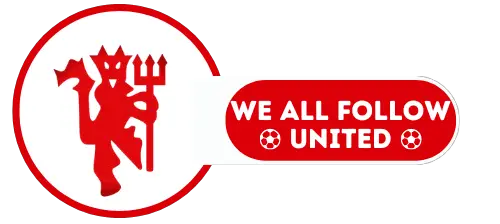
The day was always going to come, it was inevitable.
But when the grand master of football Sir Alex Ferguson announced his retirement as manager of Manchester United a few days before the penultimate game of this latest title winning season, it was no less surprising or emotional. Not just for followers of the club such as myself, but the whole football world felt some sense of loss when the news filtered through.
Ferguson has been the permanent, stable statesman of football management since 1986, overseeing Manchester United through the most successful period in their history. In the era of modern football where the average tenure of a manager in the British game is not much more than a year, Ferguson has remained as a tangible link to the pre-Premier League generation. A time when money wasn’t everything, drinking a couple of pints the night before a game was an accepted ritual, and an Irishman playing in the English league was the extent of the foreign invasion.
Like myself, a whole generation of reds, and football supporters, have known only Ferguson in the Old Trafford hotseat. And to think, if any giant of English football nowadays had the sort of fallow period in terms of trophies that greeted Ferguson before breaking the duck with the 1990 FA Cup trophy, they would not receive the time to establish their legacy. Luckily, the United faithful largely stayed on-side with Ferguson’s master-plan, and with the board also accepting the scale of the task that faced the manager in restoring United to greatness, the rest as they say is history.
As a result of the patience shown, and the man-management skills that have enabled Ferguson to rebuild trophy-winning sides on multiple occasion, the great man of English football management bows out with a total of 38 trophies. And though they might not always accept it on the grounds of jealousy or otherwise, he has also garnered the respect and admiration of the wider footballing community.
I will always remember waking up on the day it was announced to an alert on my phone that Ferguson was departing. Rumours swirled around Twitter the previous evening, but I know most reds were hopeful that they were just that. With further speculation surfacing about Cristiano Ronaldo possibly returning from Real Madrid, I hoped beyond hope that any announcement would be along those lines, but alas my worst fears were realised. It was rather a surreal week, with Wayne Rooney’s transfer request, David Moyes appointment as the new manager, and Paul Scholes also announcing his departure from the game. I struggle to remember a week like it.
Everyone who is everyone has weighed in on Fergie’s legacy – the overwhelming majority choosing to celebrate achievements that are unlikely to be surpassed. Jose Mourinho may well end up with a similar trophy haul, having secured 20 major honours thus far, but it will never come close to Ferguson’s sheer impact on the game in England. The modern game is almost unrecognisable from that which existed when Ferguson entered the Old Trafford dugout for the first time, and to develop and redevelop title winning sides across a period of 26 years is a remarkable effort.
Some would say that he has been fortunate, that after his initial struggles in hauling United up from a mid-table side to perennial challengers on four fronts (FA Cup, League Cup, Champions League and the Premier League), he has been blessed with the money to build squads capable of winning major honours. But this skims over the real reason for the success: bringing through youth, combining with the experienced pros, and using money wisely on foreign talent. It is all well and good having money, but as Leeds, Portsmouth, QPR etc. have found, it is another story getting the right blend and a group of players who will fight for each other. Fergie has undoubtedly had that and then some.
You suspect that the aspect of his managerial career that he is most proud of is the flourishing of young British players into full grown professionals. The class of 92, nicknamed Fergie’s Fledglings, are the obvious cornerstone in his belief in young players – Ryan Giggs, Scholes, the Neville brothers Gary and Phil, David Beckham, Nicky Butt, who all made a mockery of Alan Hansen’s quote “You will win nothing with kids”. That group of players had a major part to play in modern United history.
And as more and more foreign imports have flooded the English game, he has stuck firmly to his principles. For every Ruud van Nistelrooy and Jaap Stam there is a Danny Welbeck and Jonny Evans. British talent runs through the latest title winning side – Tom Cleverly, Chris Smalling, Wayne Rooney, Evans, Phil Jones, Welbeck, Michael Carrick, Rio Ferdinand, Nick Powell ready to make a breakthrough – all either brought through or nurtured at Carrington. This is just another reason that makes Ferguson such a special manager; he knows his history, the Busby Babes being just one small but significant part of it, and he has continued that legacy.
Ferguson has earned the right to choose his time to depart through this great success. He has spoken of his error to announce his intention to retire in 2002, which he eventually went back on, but from that moment on he had not declared publicly any thoughts about when he would leave his lofty position. That was until this latest shock news, but luckily for United supporters, his presence will continue to be felt around the club. To go out on a high by reclaiming the title from neighbours Manchester City was the perfect end to 26 years of unforgettable success.
Thankyou Fergie.
By Daniel Matcham @boymetworld91


